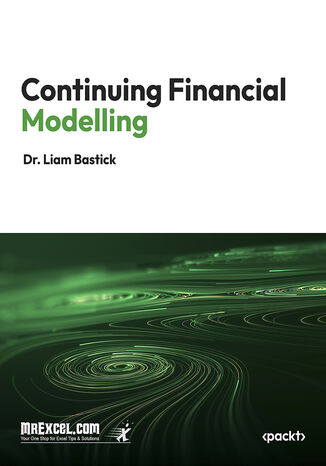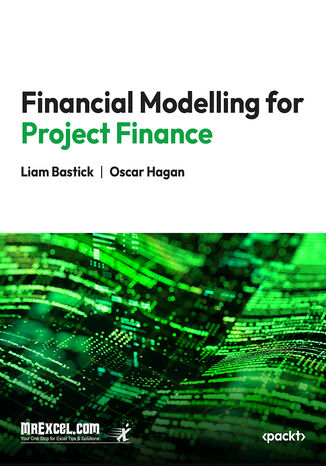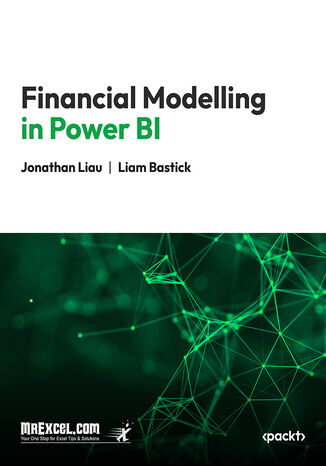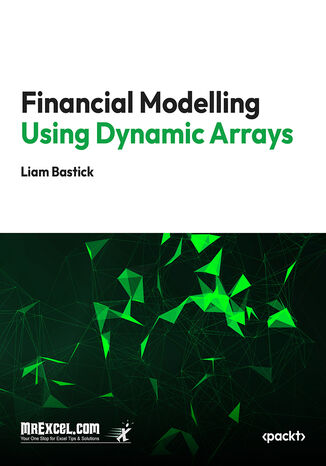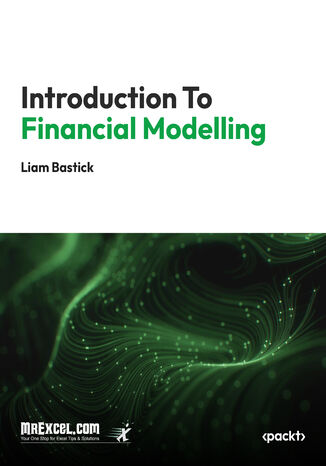Kategorien
E-Books
-
Wirtschaft
- Bitcoin
- Geschäftsfrau
- Coaching
- Controlling
- E-Business
- Ökonomie
- Finanzen
- Börse und Investitionen
- Persönliche Kompetenzen
- Computer im Büro
- Kommunikation und Verhandlungen
- Kleines Unternehmen
- Marketing
- Motivation
- Multimedia-Training
- Immobilien
- Überzeugung und NLP
- Steuern
- Sozialpolitik
- Handbȕcher
- Präsentationen
- Führung
- Public Relation
- Berichte, Analysen
- Geheimnis
- Social Media
- Verkauf
- Start-up
- Ihre Karriere
- Management
- Projektmanagement
- Personal (HR)
-
Für Kinder
-
Für Jugendliche
-
Bildung
-
Enzyklopädien, Wörterbücher
-
E-Presse
- Architektura i wnętrza
- Sicherheit und Gesundheit am Arbeitsplatz
- Biznes i Ekonomia
- Haus und Garten
- E-Business
- Ekonomia i finanse
- Esoterik
- Finanzen
- Persönliche Finanzen
- Unternehmen
- Fotografie
- Informatik
- HR und Gehaltsabrechnung
- Frauen
- Computer, Excel
- Buchhaltung
- Kultur und Literatur
- Wissenschaftlich und akademisch
- Umweltschutz
- meinungsbildend
- Bildung
- Steuern
- Reisen
- Psychologie
- Religion
- Landwirtschaft
- Buch- und Pressemarkt
- Transport und Spedition
- Gesundheit und Schönheit
-
Geschichte
-
Informatik
- Office-Programme
- Datenbank
- Bioinformatik
- IT Branche
- CAD/CAM
- Digital Lifestyle
- DTP
- Elektronik
- Digitale Fotografie
- Computergrafik
- Spiele
- Hacking
- Hardware
- IT w ekonomii
- Wissenschaftliche Pakete
- Schulbücher
- Computergrundlagen
- Programmierung
- Mobile-Programmierung
- Internet-Server
- Computernetzwerke
- Start-up
- Betriebssysteme
- Künstliche Inteligenz
- Technik für Kinder
- Webmaster
-
Andere
-
Fremdsprachen lernen
-
Kultur und Kunst
-
Lektüre
-
Literatur
- Anthologien
- Ballade
- Biografien und Autobiografien
- Für Erwachsene
- Drama
- Tagebücher, Memoiren, Briefe
- Epos
- Essay
- Science Fiction
- Felietonys
- Fiktion
- Humor, Satire
- Andere
- Klassisch
- Krimi
- Sachbücher
- Belletristik
- Mity i legendy
- Nobelpreisträger
- Kurzgeschichten
- Gesellschaftlich
- Okultyzm i magia
- Erzählung
- Erinnerungen
- Reisen
- Gedicht
- Poesie
- Politik
- Populärwissenschaftlich
- Roman
- Historischer Roman
- Prosa
- Abenteuer
- Journalismus
- Reportage
- Romans i literatura obyczajowa
- Sensation
- Thriller, Horror
- Interviews und Erinnerungen
-
Naturwissenschaften
-
Sozialwissenschaften
-
Schulbücher
-
Populärwissenschaft und akademisch
- Archäologie
- Bibliotekoznawstwo
- Filmwissenschaft
- Philologie
- Polnische Philologie
- Philosophie
- Finanse i bankowość
- Erdkunde
- Wirtschaft
- Handel. Weltwirtschaft
- Geschichte und Archäologie
- Kunst- und Architekturgeschichte
- Kulturwissenschaft
- Linguistik
- Literaturwissenschaft
- Logistik
- Mathematik
- Medizin
- Geisteswissenschaften
- Pädagogik
- Lehrmittel
- Populärwissenschaftlich
- Andere
- Psychologie
- Soziologie
- Theatrologie
- Teologie
- Theorien und Wirtschaftswissenschaften
- Transport i spedycja
- Sportunterricht
- Zarządzanie i marketing
-
Handbȕcher
-
Spielanleitungen
-
Professioneller und fachkundige Leitfaden
-
Jura
- Sicherheit und Gesundheit am Arbeitsplatz
- Geschichte
- Verkehrsregeln. Führerschein
- Rechtswissenschaften
- Gesundheitswesen
- Allgemeines. Wissenskompendium
- akademische Bücher
- Andere
- Bau- und Wohnungsrecht
- Zivilrecht
- Finanzrecht
- Wirtschaftsrecht
- Wirtschafts- und Handelsrecht
- Strafrecht
- Strafrecht. Kriminelle Taten. Kriminologie
- Internationales Recht
- Internationales und ausländisches Recht
- Gesundheitsschutzgesetz
- Bildungsrecht
- Steuerrecht
- Arbeits- und Sozialversicherungsrecht
- Öffentliches, Verfassungs- und Verwaltungsrecht
- Familien- und Vormundschaftsrecht
- Agrarrecht
- Sozialrecht, Arbeitsrecht
- EU-Recht
- Industrie
- Agrar- und Umweltschutz
- Wörterbücher und Enzyklopädien
- Öffentliche Auftragsvergabe
- Management
-
Führer und Reisen
- Afrika
- Alben
- Südamerika
- Mittel- und Nordamerika
- Australien, Neuseeland, Ozeanien
- Österreich
- Asien
- Balkan
- Naher Osten
- Bulgarien
- China
- Kroatien
- Tschechische Republik
- Dänemark
- Ägypten
- Estland
- Europa
- Frankreich
- Berge
- Griechenland
- Spanien
- Niederlande
- Island
- Litauen
- Lettland
- Mapy, Plany miast, Atlasy
- Miniführer
- Deutschland
- Norwegen
- Aktive Reisen
- Polen
- Portugal
- Andere
- Przewodniki po hotelach i restauracjach
- Russland
- Rumänien
- Slowakei
- Slowenien
- Schweiz
- Schweden
- Welt
- Türkei
- Ukraine
- Ungarn
- Großbritannien
- Italien
-
Psychologie
- Lebensphilosophien
- Kompetencje psychospołeczne
- zwischenmenschliche Kommunikation
- Mindfulness
- Allgemeines
- Überzeugung und NLP
- Akademische Psychologie
- Psychologie von Seele und Geist
- Arbeitspsychologie
- Relacje i związki
- Elternschafts- und Kinderpsychologie
- Problemlösung
- Intellektuelle Entwicklung
- Geheimnis
- Sexualität
- Verführung
- Aussehen ind Image
- Lebensphilosophien
-
Religion
-
Sport, Fitness, Diäten
-
Technik und Mechanik
Hörbücher
-
Wirtschaft
- Bitcoin
- Geschäftsfrau
- Coaching
- Controlling
- E-Business
- Ökonomie
- Finanzen
- Börse und Investitionen
- Persönliche Kompetenzen
- Kommunikation und Verhandlungen
- Kleines Unternehmen
- Marketing
- Motivation
- Immobilien
- Überzeugung und NLP
- Steuern
- Sozialpolitik
- Handbȕcher
- Präsentationen
- Führung
- Public Relation
- Geheimnis
- Social Media
- Verkauf
- Start-up
- Ihre Karriere
- Management
- Projektmanagement
- Personal (HR)
-
Für Kinder
-
Für Jugendliche
-
Bildung
-
Enzyklopädien, Wörterbücher
-
E-Presse
-
Geschichte
-
Informatik
-
Andere
-
Fremdsprachen lernen
-
Kultur und Kunst
-
Lektüre
-
Literatur
- Anthologien
- Ballade
- Biografien und Autobiografien
- Für Erwachsene
- Drama
- Tagebücher, Memoiren, Briefe
- Epos
- Essay
- Science Fiction
- Felietonys
- Fiktion
- Humor, Satire
- Andere
- Klassisch
- Krimi
- Sachbücher
- Belletristik
- Mity i legendy
- Nobelpreisträger
- Kurzgeschichten
- Gesellschaftlich
- Okultyzm i magia
- Erzählung
- Erinnerungen
- Reisen
- Poesie
- Politik
- Populärwissenschaftlich
- Roman
- Historischer Roman
- Prosa
- Abenteuer
- Journalismus
- Reportage
- Romans i literatura obyczajowa
- Sensation
- Thriller, Horror
- Interviews und Erinnerungen
-
Naturwissenschaften
-
Sozialwissenschaften
-
Populärwissenschaft und akademisch
- Archäologie
- Philosophie
- Wirtschaft
- Handel. Weltwirtschaft
- Geschichte und Archäologie
- Kunst- und Architekturgeschichte
- Kulturwissenschaft
- Literaturwissenschaft
- Mathematik
- Medizin
- Geisteswissenschaften
- Pädagogik
- Lehrmittel
- Populärwissenschaftlich
- Andere
- Psychologie
- Soziologie
- Teologie
- Zarządzanie i marketing
-
Handbȕcher
-
Professioneller und fachkundige Leitfaden
-
Jura
-
Führer und Reisen
-
Psychologie
- Lebensphilosophien
- zwischenmenschliche Kommunikation
- Mindfulness
- Allgemeines
- Überzeugung und NLP
- Akademische Psychologie
- Psychologie von Seele und Geist
- Arbeitspsychologie
- Relacje i związki
- Elternschafts- und Kinderpsychologie
- Problemlösung
- Intellektuelle Entwicklung
- Geheimnis
- Sexualität
- Verführung
- Aussehen ind Image
- Lebensphilosophien
-
Religion
-
Sport, Fitness, Diäten
-
Technik und Mechanik
Videokurse
-
Datenbank
-
Big Data
-
Biznes, ekonomia i marketing
-
Cybersicherheit
-
Data Science
-
DevOps
-
Für Kinder
-
Elektronik
-
Grafik / Video / CAX
-
Spiele
-
Microsoft Office
-
Entwicklungstools
-
Programmierung
-
Persönliche Entwicklung
-
Computernetzwerke
-
Betriebssysteme
-
Softwaretest
-
Mobile Geräte
-
UX/UI
-
Web development
-
Management
Podcasts
Continuing Financial Modelling. Advanced Techniques and Insights for Modern Financial Modelling
MrExcel's Holy Macro! Books, Liam Bastick
This book provides a thorough exploration of advanced financial modeling techniques, designed to elevate the skills of finance professionals. Starting with a recap of essential concepts, it progresses into dynamic 'What-If?' analysis, advanced forecasting methods, and inventory modeling. The focus is on practical applications, ensuring readers can implement the techniques immediately.Topics such as capital expenditure, debt calculations, and valuation are covered in detail, including DCF and MIRR analysis. The book emphasizes accuracy and efficiency in financial models, offering insights into refining forecasts and linking complex models. With a focus on sensitivity analysis and scenario planning, readers gain tools to handle real-world financial challenges.The final chapters delve into advanced Excel functions like XLOOKUP, dynamic arrays, and scenario-building tools. Best practices for maintaining model accuracy, reducing file sizes, and creating professional models are thoroughly discussed. This guide equips readers with the expertise to manage complex financial modeling tasks confidently.
MrExcel's Holy Macro! Books, Liam Bastick, Oscar Hagan
This book is a practical guide for mastering financial modeling in project finance, providing a clear journey from foundational concepts to advanced techniques. It begins by introducing project finance, its significance, and how it differs from other finance structures. Readers will learn key Excel functions, data validation, and layout strategies essential for creating accurate and dynamic models.As the journey progresses, the book emphasizes best practices for building transparent, flexible, and robust models. It covers linked financial statements, cash flow waterfalls, debt structuring, and valuation techniques. A comprehensive case study walks readers through the construction of a full project finance model, separating construction and operational phases while integrating advanced concepts like scenario planning, sensitivity analysis, and ratio metrics.Designed with a logical flow, this book equips readers with practical skills to tackle real-world financial challenges. From Excel tips to project valuation and funding strategies, it provides actionable insights for analysts, finance professionals, and project managers seeking to excel in project finance modeling.
Financial Modelling in Power BI. Master Subtotals, Functions, and Advanced Excel Tricks in Minutes!
MrExcel's Holy Macro! Books, Jonathan Liau, Liam Bastick
This book introduces readers to the fundamentals of financial modeling using Power BI, starting with an overview of the tool and best practices for creating robust, transparent, and flexible models. Early chapters lay the groundwork by explaining financial statement theory and control accounts, essential concepts for any financial analyst. Readers are guided step-by-step through creating parameters and calculating sales, ensuring a solid foundation in Power BI's core functionalities.As the book progresses, readers delve into more advanced topics such as inventory calculations, operating and capital expenditures, and tax computations. Practical examples and hands-on exercises make complex concepts like DAX functions, FIFO inventory modeling, and control account measures accessible to users of all experience levels. Detailed sections on cash flow statements, income statements, and balance sheets tie the lessons together, showing how these elements integrate into a comprehensive financial model.The final chapters explore advanced features like interest and debt modeling, recursion aversion, and equity calculations, culminating in the creation of fully dynamic and optimized models. Readers also learn to design compelling visualizations to present financial insights effectively. By the end of the journey, users will have the tools and confidence to apply their knowledge to real-world scenarios, mastering financial modeling with Power BI.
Financial Modelling using Dynamic Arrays. Let Lambdas Extend Your Range
MrExcel's Holy Macro! Books, Liam Bastick
Dive into the transformative power of Excel's dynamic arrays in financial modelling. Learn to optimize formulas with LET, create reusable LAMBDA functions, and craft sophisticated models. The book provides a comprehensive introduction to Excel’s dynamic arrays, comparing legacy methodologies with modern capabilities while integrating practical tips and best practices.Through real-world examples and step-by-step tutorials, you’ll uncover the full potential of functions like SORT, FILTER, SEQUENCE, and LAMBDA. Discover how dynamic arrays reduce errors, boost efficiency, and enable innovative approaches to financial modelling. The book also highlights advanced features like eta lambdas and helper functions, offering a deep dive into the cutting-edge tools now available in Excel 365.Whether you’re building complex financial models or just looking to refine your techniques, this guide equips you with the knowledge to transform your processes. Excel enthusiasts and professionals alike will appreciate the clarity and depth this book provides, helping you elevate your modelling game to a whole new level.
MrExcel's Holy Macro! Books, Liam Bastick
This book serves as a comprehensive guide to financial modeling, equipping readers with the skills and knowledge to create accurate, reliable models for analysis and decision-making. Designed for professionals, students, and finance enthusiasts, it bridges theoretical principles with practical Excel-based techniques, ensuring a balanced and thorough understanding of the subject.Key Excel functions such as SUMPRODUCT, INDEX and MATCH, and LOOKUP are covered in depth, alongside essential tools like conditional formatting, data validation, and solver. The book emphasizes best practices in layout design, error checking, and model transparency, helping users build robust and easy-to-follow financial models. Practical methodologies for time-series analysis, control accounts, and financial statement theory are explored, making it a versatile resource.The step-by-step model-building example guides readers through structuring, linking, and finalizing financial statements, including revenue, expenditure, taxation, and cash flow. Ratio analysis and self-review techniques are also discussed to ensure model accuracy and integrity. This detailed yet accessible guide empowers readers to create professional financial models with confidence and clarity.

